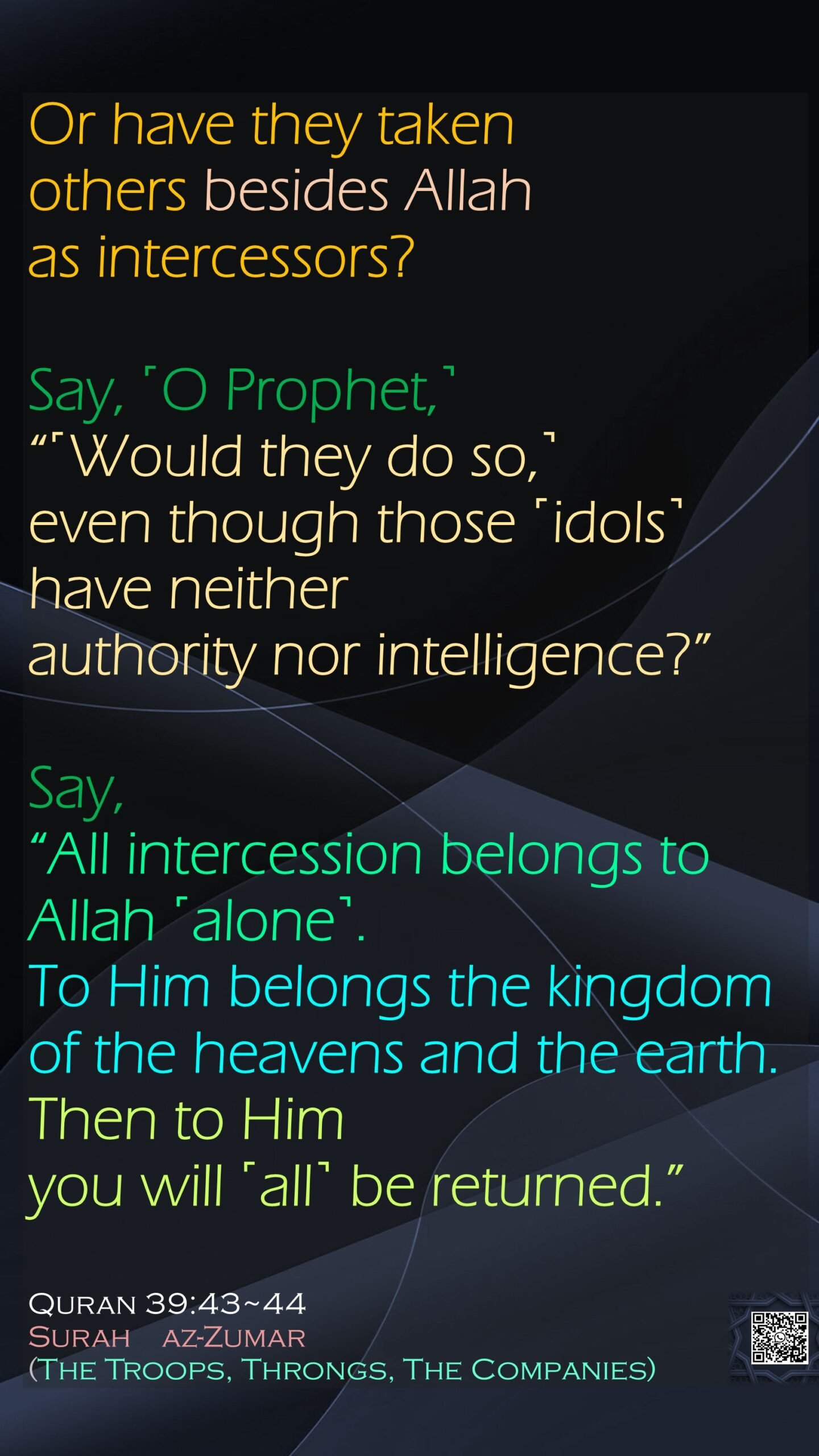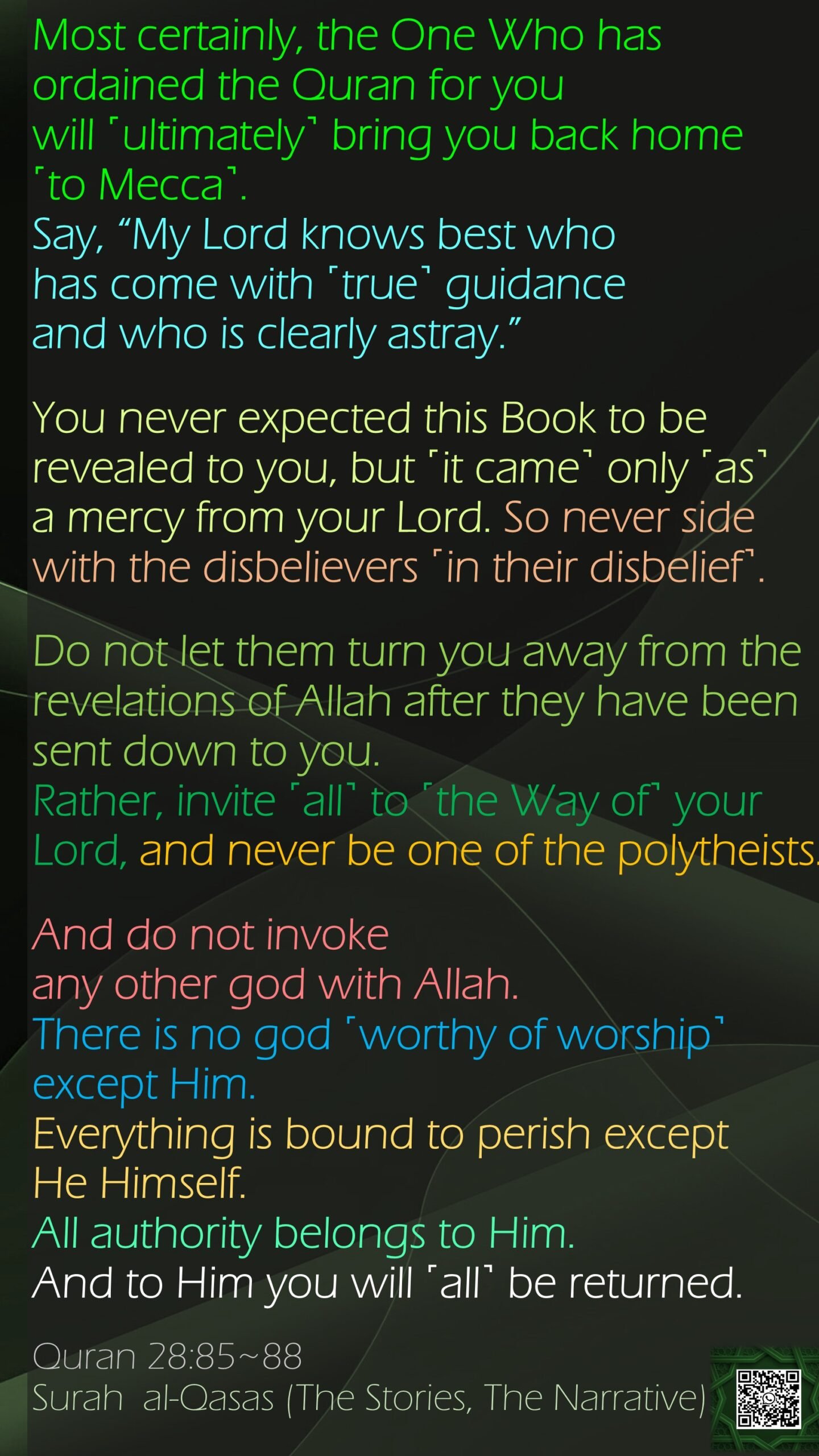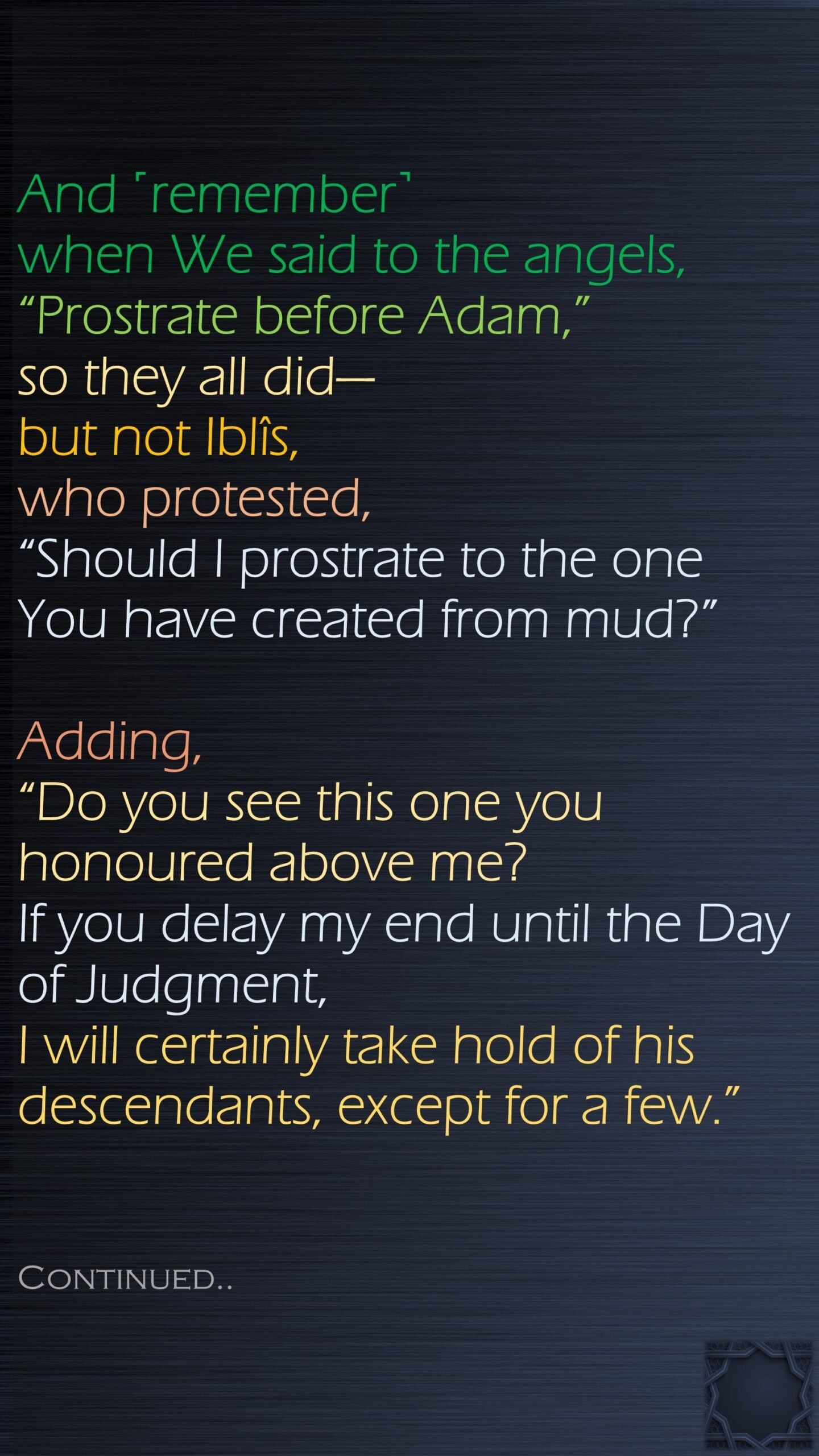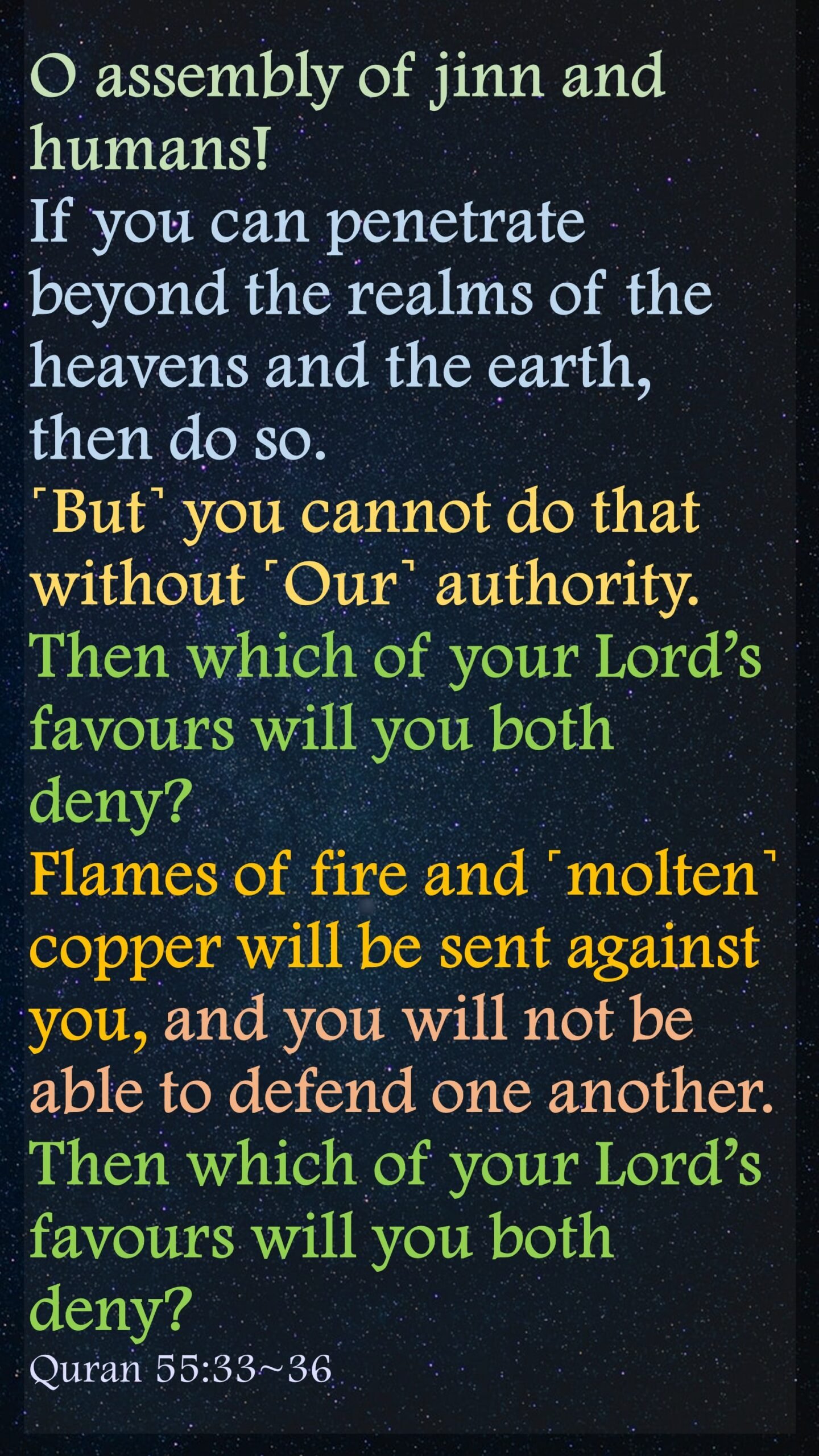Skip to Content
Tag Archives: authority
- Home -
- Posts tagged "authority"
1
Mar, 2026
Islam, Quran
043, 044, 44, Allah, authority, ayat, daily, earth, heavens, idols, inspirations, intelligence, intercede, intercession, intercessrs, islam, islamic, Kingdom, Muhammad, others, quran, return, Surah, troops
2
Nov, 2025
Islam, Quran
085, 087, al-Qasas, Allah, astray, authority, ayat, belong, daily, guidance, inspirations, invite, invoke, islam, islamic, Kingdom, Lord, Mercy, Muhammad, perish, polytheist, quran, return, reveal, revelation, stories, story, Surah, true, worship
25
Jan, 2025
Islam, Quran
al-isra, Allah, authority, ayat, children, daily, day, delude, inspirations, islam, islamic, Muhammad, none, promise, Surah, wealth
25
Jul, 2024
Islam, Quran
Allah, authority, ayat, benefit, Bliss, burn, burst apart, daily, day, entire, escape, hell, inspirations, intifar, islam, islamic, judgement, Muhammad, none, quran, Soul, Surah, undivided, virtous, wicked
18
Feb, 2024
Islam, Quran
Allah, authority, ayat, daily, day, forgive, inspirations, islam, islamic, Mercy, Muhammad, Punishment, quran, stature, Surah, test
29
Dec, 2023
Islam, Quran
Allah, authority, ayat, daily, day, inspirations, islam, islamic, Muhammad, praise, quran, returned, Surah, worship
4
Nov, 2022
Islam, Quran
alone, authority, ayat, chapter 3, daily, disgrace, everything, give, good, Hand, honour, inspirations, islam, islamic, Lord, Most Capable, quran, remove, Surah, take, Verse 26
29
Sep, 2022
Uncategorized
All Forgiving, Allah, Almighty, authority, Blessed, capable, daily, Death, everything, inspirations, islam, islamic, Life, quran, Surah
29
Aug, 2022
Islam, Quran
Allah, Ar-Rahman, authority, ayat, Chapter 55, copper, daily, defend, earth, favor, favour, fire, Flames, heavens, inspirations, islam, islamic, Lord, molten, not, Our, quran, realm, Surah
11
Jul, 2022
Islam, Quran
Allah, alone, authority, ayat, capable, chapter 3, daily, day, dead, disgrace, everything, give, good, Hands, honor, honour, inspirations, islam, islamic, limit, living, Lord, most, Muhammad, night, pass, PBUH, Prophet, provide, provision, quran, remove, SAWW, Surah, Verse 26, Verse 27, without









